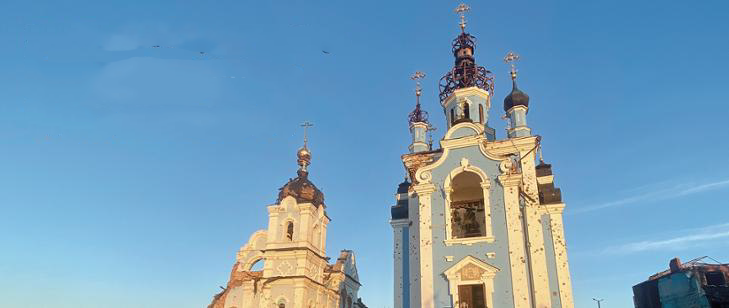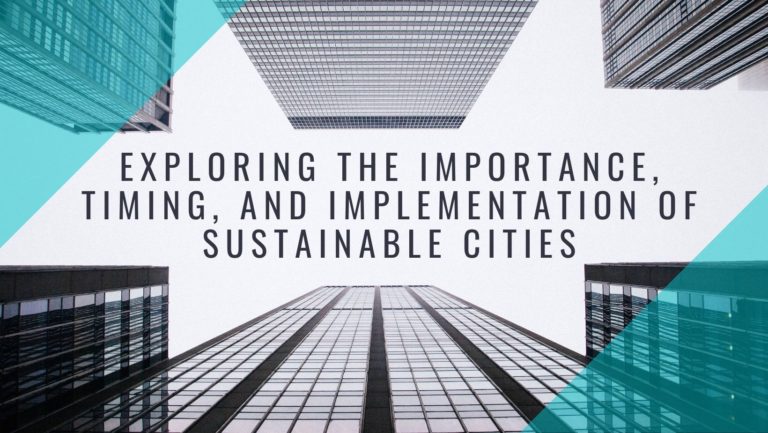Today, Vladimir Putin unilaterally decided to unleash a devastating attack on Ukraine that undermines international law, human rights, sustainable Development and risks destabilizing the entire region, if not the world. The AI for Good Foundation denounces Russia’s government for taking horrific actions that have no place in civilized society, and stands firmly with the Ukrainian people.
The AI for Good Foundation is extremely disappointed in China’s government for exploiting geopolitical instability and propaganda for their own ends, and not directly and explicitly condemning an unprovoked attack on a sovereign state. In 2022, there is no place for imperialism, there is no place for medieval leaders drawing the blood of their own and other countries’ people for personal gain, and there is no place for naked threats of nuclear war.
As an organisation, we believe in the power of Artificial Intelligence and other advanced technologies to do good in the world. We believe in the goodness of individuals and society to find ways to solve challenges through innovation and hard work. Russia has an incredible wealth of human resources and ingenuity. Russian scientists, educators, engineers, and civil society leaders have contributed incredibly to the 20th and 21st century innovations that have had positive impacts globally.
The Russian people, Ukrainian people, and people of all other nations are fundamentally aligned behind common goals of shared peace and prosperity. Today’s actions do not align with the values and objectives of any population. They align only to the greed of a small number of individuals, prepared to starve their people of the resources they need for economic opportunity and sustainable development.
Putin’s attack on Ukraine is likely to yield the largest and deadliest impact of Artificial Intelligence technologies and sustainable development we have seen. Reconnaissance, missile guidance systems, communications systems, strategic control infrastructure, and military logistics are optimized via AI to maximize the deadly impact of deployed military resources in real time.
Concerted attacks on physical and digital infrastructure (hacking, distributed denial of service attacks, etc.) are also orchestrated and scaled through AI. Most of these systems are seeing their first real deployments into battle, and may not perform exactly as anticipated, adding to the potential for deadly strategic miscalculations. Nevertheless, it is not Artificial Intelligence that poses a risk to our collective freedom and human values–it is the distinctly human exploitation of a human system, and it is the human systems and institutions that we must focus on improving first and foremost.
Sustainable Development Goals
Beyond the immediate and unconscionable bloodshed within Ukraine’s territory, Putin’s war will place a large strain on humanity’s collective achievement of the Sustainable Development Goals. The United Nation’s ambitious Sustainable Development Goals, ratified by practically all nations (including Russia and China) in 2015, includes peace as a fundamental component (excerpt from the UNGA 70th Report):
“It has also been determined to foster peaceful, just and inclusive societies which are free from fear and violence. There can be no sustainable development without peace and no peace without sustainable development.”
We are well behind where we need to be in order to achieve the Sustainable Development Goals by 2030 (the original timeline). The COVID-19 pandemic has already seen a variety of measures moving further from the goal posts, including just and equitable societies, gender equity, no poverty and no hunger. Putin’s current decision will make him personally and historically accountable for destroying our ability to achieve the vast majority of these Sustainable Development Goals on time, and may set the planet on a path to irreversible and highly damaging climate shifts.
Should the conflict escalate towards the use of tactical nuclear weapons or strategic ‘escalate-to-de-escalate’ policies (as discussed in the Congressional Research Service Report R45861, in September of 2021), the additional environmental damage could be extreme (beyond the enormous emissions from full-scale military activities):
“When combined with military exercises and Russian officials’ public statements, this evolving doctrine seems to indicate that Russia has potentially placed a greater reliance on nuclear weapons and may threaten to use them during regional conflicts. This doctrine has led some U.S. analysts to conclude that Russia has adopted an “escalate to de-escalate” strategy, where it might threaten to use nuclear weapons if it were losing a conflict with a NATO member, in an effort to convince the United States and its NATO allies to withdraw from the conflict.”
The economic consequences of war for individuals in the affected regions and globally–including local shortages, energy supply uncertainty, price fluctuations, and shifts in the connectivity of global supply chains and financial networks–will definitively cause reversals in the broader ability of nations to achieve their commitments under the Sustainable Development Goals. In particular, wars have a straining effect on the very fabric of society, which leads to increased inequalities that can persist for decades and inter-generationally.
As global investments slow down, infrastructure spending shifts, and inflationary environments become more acute, the ability for central governments to direct resources to address fundamental social and environmental challenges becomes heavily constrained, leading to potential further reversals in our achievements to-date. Russia may be among the first to experience this reality.
One area of special concern relates to the Russian government’s successful use of primitive propaganda instruments, internet monitoring, and digital infrastructure management in an attempt to fabricate alternate historical narratives and seed hatred towards Ukraine among the Russian populace. Centralized and globally available social networks have allowed for an unprecedented level of communication in the past years, but they also facilitate highly effective disinformation campaigns, are prone to state-level manipulation, and destabilize networks of trust.
The Russian people are bombarded with fictitious narratives (from extreme food shortages in the United States, to Ukrainian aggression in the Donbass regions) through a mixture of controlled social media and traditional state-run media exposure. The idea that such power can be wielded over public opinion in the 21st century remains troubling, and must become an area of innovation and improvement over the coming years.
Military action might be short, prolonged, or escalate into additional regions and intensify. As our nations prepare for the longer-term possibility of a global theater of war, enormous investments will be required, further eating into resources that could be mobilized for Sustainable Development Goals-focussed efforts. Even if matters were to de-escalate fairly quickly, NATO and its allies would be forced into a period of renewed spending on military infrastructure and readiness within the confines of a destabilized world order and prospect of further conflict.
In his book, The Gathering Storm, Winston Churchill marks the theme of the volume as:
“How the English-speaking people, through their unwisdom, carelessness, and good nature allowed the wicked to rearm.”
For more than two decades, Putin has been preparing [through military modernization, economic strangulation of his people, and Geo-political maneuvering] to enact a plan to change the course of history and build a new Russian empire on autocratic rule, propaganda, and shows of military “strength”. For more than two decades, the Western world has fallen into a mindset of de-militarization, a preference for soft power, and appeasement of dangerous governments.
There are many a parallel between the time leading up to the Second World War and early signs of Hitler’s true ambitions, and our present predicament. In our present case, however, the distribution of possible outcomes is more extreme. On the one hand, Russia’s tactical military forces are not very strong on a world stage. On the other hand, Putin has made clear his strategic ability to wipe out key military and economic centers in short order from deployed military infrastructure in the North and Pacific fleets, should sufficient pressure be placed on him.
No matter how this chapter ends in the brief book of human history, Putin is assuring himself of a prime position among tyrannical leaders of the modern era. We are ready to stand and be counted, and to do whatever we can to make sure humanity and our planet will win in the end.
“Eternal vigilance is the price of liberty.”
— (supposed) Thomas Jefferson
If you live in a war affected area please visit our Svidok(witness) – war journal







